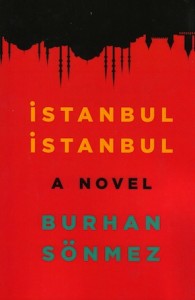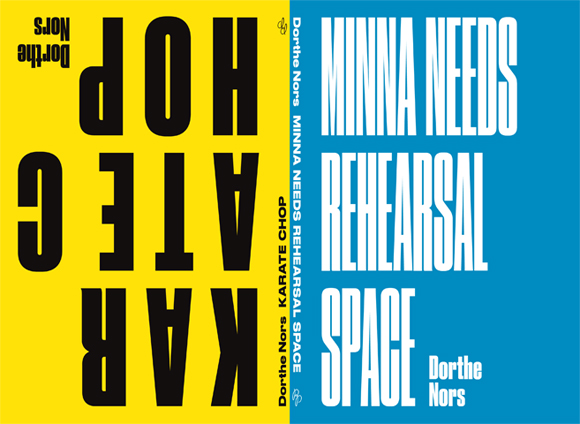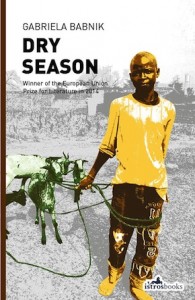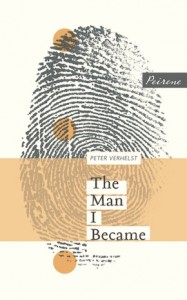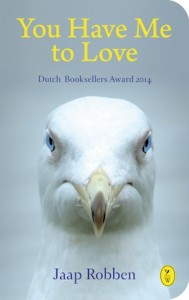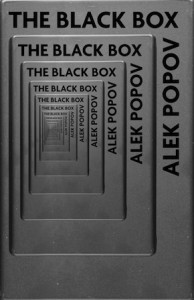Reading Europe
by Mark ReynoldsNow in its eighth year, European Literature Night (ELN) returns with an expanded programme under the banner of the newly inaugurated European Literature Festival. Presented by EUNIC London, ELF is a six-week celebration of literature from across the continent, with more than 60 writers and poets from over 30 countries involved in events and projects from 27 April to 9 June. At the epicentre is the flagship Writers’ Showcase of this year’s ELN writers at the British Library on Wednesday 11 May. Another highlight is readings from each of the Man Booker International Prize shortlisted novels on Sunday 15 May, the eve of the winner’s announcement.
As well as events in the capital, ELF reaches beyond London with events in Chichester, Birmingham, Newcastle and Leicester, plus a ‘Poetry Periscope’ sound installation, produced in partnership with Czech-based Piána na ulici and The Poetry Society, which launches at the British Library Piazza on 3 May before setting off around the UK. Translation Pitch also returns on 9 June, with six translators pitching their literary projects in front of a live audience and a jury of editors.
The Writers’ Showcase follows a day of talks and translation clinics at the British Library. Novelist and playwright Kate Mosse will deliver an opening address before the six 2016 ELN writers – chosen from a pool of 65 writers submitted by publishers – read from their work and are interviewed onstage by broadcaster and director of the European Literature Network Rosie Goldsmith.
The discussion will travel from the Turkish prison cells of Burhan Sönmez’s Istanbul, Istanbul to lives turned upside-down in Dorthe Nors’ twisted and imaginatively-realised tales of contemporary Denmark; to Slovenian writer Gabriela Babnik’s seductive tale of forbidden love on the dusty plains of Ouagadougou; via Belgian Peter Verhelst’s deadpan Gorilla-narrated fable about the collapse of human civilisation. There is a tormented relationship unfolding between a widow and son on Dutch-writer Jaap Robben’s remote and stormy island (located somewhere between Scotland and Norway); while Alek Popov’s comic novel The Black Box moves between Bulgaria and New York, where two brothers question whether their long-disappeared father is actually dead.
A brief extract below from each of the featured books gives a superb flavour of the inventive and varied writers and translators supported by some of our boldest independent publishers.
from Istanbul, Istanbul
by Burhan Sönmez
“It’s actually a long story but I’ll be brief,” I said. “No one had ever seen so much snow in Istanbul. When the two nuns left Saint George’s Hospital in Karaköy in the dead of night to go to the Church of Saint Anthony of Padua to break the bad news, there were scores of dead birds under the eaves. That April, ice cracked the Judas tree flowers, while the razor-sharp wind bit the stray dogs. Have you ever known it to snow in April, Doctor? It’s actually a long story but I’ll be brief. One of the nuns sliding and stumbling in the blizzard was young, the other old. When they had almost reached the Galata Tower the young nun said to her companion, a man has been following us all the way up the hill. The older nun said there could only be one reason why a man would follow them in a storm in the pitch darkness.”
When I heard the sound of the iron gate in the distance I stopped telling my story and looked at the Doctor.
It was cold in our cell. While I was telling the Doctor my story, Kamo the Barber lay curled on the bare concrete floor. We had no covers, we warmed ourselves by huddling together, like puppies. Because time had stood still for several days we had no idea if it was day or night. We knew what pain was, every day we relived the horror that clamped our hearts as we were led away to be tortured. In that short interval where we braced ourselves for pain, humans and animals, the sane and the mad, angels and demons were all the same. As the grating of the iron gate echoed through the corridor, Kamo the Barber sat up. “They’re coming for me,” he said.
I got up, went to the cell door and peered through the small grille. As I tried to make out who was coming from the direction of the iron gate, my face was illuminated by the light in the corridor. I couldn’t see anyone, they were probably waiting at the entrance. The light dazzled me and I blinked. I glanced at the cell opposite, wondering whether the young girl they had shoved in there today like a wounded animal was dead or alive.
When the sounds in the corridor grew faint I sat down again and placed my feet on top of the Doctor’s and Kamo the Barber’s. We pressed our bare feet closer together for warmth, and kept our hot breath near one another’s faces. Waiting too was an art. We listened wordlessly to the muffled clinking and rattling from the other side of the wall.
The Doctor had been in the cell for two weeks when they threw me in with him. I was a mess of blood. When I came to the next day, I saw he hadn’t stopped at cleaning my wounds, he had covered me with his jacket as well. Every day, different interrogation teams marched us away blindfolded and brought us back hours later, semi-conscious. But Kamo the Barber had been waiting for three days. Since he had been inside they had neither taken him away for interrogation nor mentioned his name.
Istanbul, Istanbul is translated by Ümit Hussein and published by OR Books.
from Minna Needs Rehearsal Space
by Dorthe Nors
Minna calls Lars.
Minna calls Lars until he picks up the phone.
Minna and Lars have discussed this before.
Lars has a cousin.
The cousin’s name is Tim.
Tim knows of a rehearsal space in Kastrup.
The rehearsal space is close to the airport.
The rehearsal space is cheap.
Minna’s never met Tim.
Minna is in many ways desperate.
Minna says, I cannot keep on being quiet.
Minna says, I’ve got to be able to turn myself up and down.
Lars sighs.
Minna says, Let’s bike out to the rehearsal space.
Lars doesn’t want to.
Lars is a culture reporter.
Lars and Minna met at a reception.
Lars introduced himself with his full name.
Minna could see that he knew everyone.
Minna could see that he would like to know everyone, but Lars doesn’t traffic in favors.
Favors are for politicians, he says.
Minna says, But it’s just a rehearsal space.
Lars says, One day it’s rehearsal space, the next…
The conversation goes on like that.
Minna pesters.
Lars relents, but only a little.
Lars says that he can call up Tim.
Minna waits by the phone.
Minna changes an A string.
Minna drinks her coffee.
The phone doesn’t ring.
Minna goes for a walk.
The phone doesn’t ring.
The phone is dead.
Minna checks the SIM card.
The SIM card’s working.
Amager Strandpark is shrouded in sea fog.
Amager Strandpark is full of architect-designed bunkers.
Amager Strandpark wants to look like Husby Dunes.
Husby Dunes used to be part of the Atlantic Wall.
Husby Dunes used to be a war zone.
Amager Strandpark makes itself pretty with a tragic backdrop.
Minna doesn’t like Amager Strandpark.
Minna really likes the Sound.
Minna loves the sea, the gulls, the salt.
Minna is a bit of a water person, and now her pocket beeps.
Minna looks at her cellphone.
Lars has sent a text.
Tim’s on Bornholm, it says.
Minna was prepared for something like that, but Minna wasn’t prepared for what comes next:
Lars writes, I think we should stop seeing each other.
Minna reads it again, but that’s what it says.
Lars is breaking up with a text.
Minna cannot breathe.
Minna has to sit down on an artificial dune.
Minna writes, Now I don’t understand.
Minna calls on the phone.
There’s no signal.
Minna waits for an answer.
The cell is dead, and so she sits there:
Amager Strandpark is Husby Dunes meets Omaha Beach.
Amager Strandpark is full of savage dogs trying to flush some thing out.
Amager Strandpark is a battlefield of wounded women.
Minna Needs Rehearsal Space, a novella told in bulletins translated by Misha Hoekstra, is published together with the story collection Karate Chop by Pushkin Press.
from Dry Season
by Gabriela Babnik
We were lying on the bed and had not let the sun into the room, but even if we had turned on a light, I don’t know if anything would have changed – if I’d have become what I was or he what he was. I moved nearer to him. I moved as near to him as possible. To his raspy breathing and warm skin. He was unusually warm. He had said in total seriousness, which gave his words added charm, that he had the heart of a buffalo. I had harnessed him, this buffalo, and now it would be hard to ever let him go. My bones wouldn’t let me. I know I write as if from the previous century, but I am from the previous century. I was born not long after the Second World War. I read somewhere that’s not the way to start a novel. I mean saying “I was born in such-and-such a place,” but let me do it anyway. Let me be forgiven for lying in bed without the light on next to this young man whose face looked like it had been drawn on. Eyes, forehead, nose – as if cut out of cardboard and pasted there.
He slept with his lids half-open and I found myself wanting to close them. There were also things about him I just knew, from a distance. I could have predicted them. Like when we were going to the hotel. While I was bent over my bag searching for my wallet, he looked away. Or on the avenue in the middle of the day, when I wanted to take his arm, it was better not to, even though I had done it just a little while before. It was better that he just walk beside me, with his slim, slender car mechanic’s body – although… although he must have already done many things in his life; you could see it in his veins, not only the veins on his arms but especially at his temples, big powerful veins, veins like electrical cables, veins like steel, like salt, like water, invincible veins, and I, next to him, was carrying my yellow bag printed with garden flowers, which later, somewhere halfway along the way, I let out of my hands. In the hotel, when we had leaned back on the plastic chairs, when our bodies had rested, he said the bag was what made him notice me. From across the avenue. Rivers were flowing between us – cars, people, street vendors, women with and without bundles on their heads, children with old and less old faces, but even so he spotted me on his retina. He was squinting his eyes, as he did now, except now they were almost completely open. Though now he was no longer looking anywhere, at least not in my direction. I imagine him looking inwards, at that buffalo heart of his and the hot blood flowing in waves through his body.
That’s probably why he was rasping in his sleep like that. In total seriousness. As if he hadn’t slept for an eternity, as if he could barely wait for someone to invite him into bed. I suppose I sensed that even from across the avenue. And when we were finally standing face to face, he said, “You were looking at me.”
I remember it clearly, him using the formal vous with me. Then I said the same thing, only with the familiar tu: “I noticed you were looking at me.”
“So what do we do now?” he laughed.
Dry Season is translated by Rawley Grau and published by Istros Books (in collaboration with Beletrina Academic Press).
from The Man I Became
by Peter Verhelst
I don’t know exactly when – I still couldn’t think in terms of days and years, that’s how long ago it was – but the heat made us so drowsy that we nodded off and slept whole afternoons away in a heap, spread-eagled on top of each other. We caught termites by pushing long twigs, as flexible as blades of grass, into their mounds and then licking the twigs clean. We risked being trampled underfoot to steal ostrich eggs out of the nest by running a few steps and then dropping to the ground so the surprised bird could no longer see us and would wander off to find out where we had got to. The sunsets were grandiose, so colourful and intoxicating that, sated with shoots and pith, we gathered in a tree to watch, arms wrapped around each other’s shoulders, drinking in the reds, purples and oranges with our eyes.
As was the custom in our family, we youngsters had gone out into the world together. We hung from branches one-handed to show off our muscles. We felt like princes and princesses. We were young and beautiful and our bliss was never going to end
***
While we were picking berries, one of us disappeared. We thought he was playing a joke on us. When the joke went on too long, we forgot him. When the second disappeared, we remembered and grew restless. By the third disappearance we were panicking. Our certainties had been snatched away. We couldn’t trust our own shadows. Without stopping to make a plan, we fled, directionless. Our enemy was unknown. We didn’t even know if there was an enemy. All we knew was that somebody who was right in front of us could disappear a minute later without trace, without a sound. Every time someone disappeared, we caught that same scent of musk and flowers.
The realization sank in: this wasn’t going to stop.
Only later did it occur to me that those who were left were the skinny ones, the least interesting. My younger brother had a wound on his stomach; I was not yet fully grown. But eventually I too disappeared. One moment I was under a tree and quietly creeping up a hill to get a view of the plain, the next I felt something heavy falling onto my back, a sharp prick in my neck. Everything around me went black. I couldn’t move.
In that blackness I found the others. We could only smell and feel and hear each other. We couldn’t reach out or embrace. We were squeezed in, blindfolded, our wrists and ankles bound, but now and then, for a few stolen seconds, we could lay a head on a shoulder. And those seconds were enough to bear the lashes that followed.
The Man I Became is translated by David Colmer and published by Peirene Press.
from You Have Me to Love
by Japp Robben
My tongue felt like it was crawling with ants. My feet were heavy. I was standing at the back door in my swimming trunks, towel around my neck. Mum had come into the kitchen, but she hadn’t looked at me yet. “There you are,” she said without raising her head as she lifted the lid off the pot. She ladled my bowl full of soup, then hers.
She dipped a finger into my soup and stirred. “Just right. Tuck in.” I sat down on my chair and stared at the steam rising sluggishly from my bowl. “Don’t leave too much for Dad. If he’d wanted a decent helping, he should’ve been back on time.” Spooning soup into her mouth, she returned to her sewing machine in the living room. “Just finishing this off. Won’t be long.”
My hands lay motionless on the table. Inside they were shaking. I could hear the scraping of gulls sharpening their beaks on the gutter above the window. I knew I should be eating my soup, but it was all I could do to take hold of the spoon. I took a gulp of water from my glass. It felt like I was choking. I gagged and a little of what I sicked up disappeared into my soup. I wiped away what had landed next to the bowl with a furtive sweep of my hand. Mum hadn’t noticed. She was leaning forward in her chair, staring intently at the rattling needle of her sewing machine, only letting up to see if she was still going in a straight line.
After a few minutes, Mum came back into the kitchen to fetch the Worcester sauce from the spice rack. She rested her hips against the sink and leaned toward the window.
“Taking his own sweet time again.” My heart wanted to leap out of my chest. I stuck the empty spoon in my mouth.
“Don’t take after your father,” she smiled. “You can never count on a man like that.” Before I could answer, the sewing machine had started rattling again.
The harder I bit down on my tongue, the more the ants prickled. Dusk made a mirror of the window. I knew it held my reflection, but I couldn’t bring myself to look. Mum went over to the bin, trod on the pedal, and let a few scraps of material fall from her hand.
“Aren’t you going to eat anything?”
I gave a jerky shrug.
“Nothing to say for yourself?”
“I’ve had enough,” I said.
“Well, that wasn’t much.”
“Sorry.”
“Don’t come crying like a baby that you want something else later.” She tipped my soup back into the pot, placed my bowl next to hers by the sink, and left the pot and one bowl on the table for Dad. She caught me looking at them. “That father of yours can heat up his own soup.” When she called him ‘that father of yours’, it meant he’d done something he needed to make up for. She rubbed dark-brown stripes across the table with a damp cloth.
“He swam away.” The words stumbled out of my mouth.
“Hmm?”
“Dad swam away.”
You Have Me to Love is translated by David Doherty and published by World Editions.
from The Black Box
by Alek Popov
I cannot believe my father is inside that black plastic box that just came from customs. No way. The box is now sat on top of the table in our sitting-room, and everyone is staring at it. Absolute horror. I don’t know exactly what they expected. A box like any other box. A delivery box. I lift it. It is heavy. A trickle of dust is coming out of one corner. My father’s ashes, I assume. I run a finger through the dust on the table, then I smell it. I’m tempted to lick it, but somehow I feel the others’ growing disapproval. On the lid, in small letters, my father’s name is written.
In a flash, it dawns on me that it could be any name.
Then, suddenly, all of them start running around, setting the table, placing flowers and bonbons and a candle, digging out a portrait of the deceased, and the domestic altar is ready. Later, other things are added: an icon, a cross, my father’s books, a diploma, a medal. My grandmother insists on highlighting my father’s social standing. Mama is pretending to do the housework, concentrating on the details, but actually she is on some other planet. She is trying to see through the dense fog that separates the world of the living from the world of the dead… People start to arrive; they stare at the black box and nod. Everything is so unexpected. Not long ago they were drinking together, and now he was gone.
The death of my father is shocking for many reasons. First of all, he was young, only fifty. Second, he was endowed with a brilliant brain, which is now lost for ever. Third, the tragedy occurred in the butt-end of nowhere, somewhere in America, which makes us all feel even more helpless. Fourth, nobody knows exactly how the tragedy happened, which enshrouds the incident in a sinister aura and fosters all sorts of ludicrous myths. Fifth, these events are, in principle, tragic. Sixth, there are probably many other reasons I cannot think of right now.
Almost an entire year has passed since the fall of Communism…
I always thought something like this would happen to him sooner or later if he carried on the way he did… My father, that is, and his drinking. He did carry on, though, drinking like an Olympic champion, and the only thing we could do was to cross our fingers. I had no clue what on earth he was trying to prove the rest of the time. All those integrals, algorithms and theorems he was producing – well, I hadn’t the slightest idea what all that was about. I was never into maths. My maths results were appalling at school. I cannot say that he was helpful either for that matter. He felt pity for me. I felt pity for him, too, for having to deal with this non-gratifying material. In some paradoxical way I was so bad at it and he was so able that, at the end of the day, we found ourselves in the same position. The length of the equation is of no importance if you cannot solve it. The only difference was that I didn’t give a toss, and for him it was a matter of life and death. Fucking integrals – they look like fishhooks. You bite one, and that is the end of you. And who, I wonder, is casting those hooks in the pond called Science to catch the carp?
The Black Box is translated by Daniella and Charles Edward Gill de Mayol de Lupe, and published by Peter Owen.
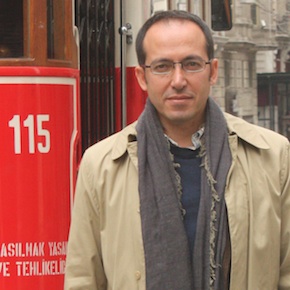 Burhan Sönmez was born in Central Anatolia in 1965, grew up speaking Kurdish and Turkish, and later moved to Istanbul where he studied law. The recipient of a number of literary prizes, he was seriously injured following an assault by Turkish police and lived in exile for some years. He now divides his time between Istanbul and Cambridge.
Burhan Sönmez was born in Central Anatolia in 1965, grew up speaking Kurdish and Turkish, and later moved to Istanbul where he studied law. The recipient of a number of literary prizes, he was seriously injured following an assault by Turkish police and lived in exile for some years. He now divides his time between Istanbul and Cambridge.
Ümit Hussein is a British translator and interpreter of Turkish Cypriot origin who was born and raised in London. She has also translated works by Nevin Halıcı, Mehmet Yashin and Ahmet Altan.
Read more.
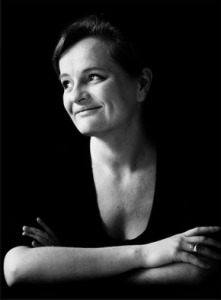 Dorthe Nors was born in 1970 and is one of the most original voices in contemporary Danish literature. Her short stories have appeared in numerous publications, including Harper’s Magazine and the Boston Review, and she is the first Danish writer ever to have a story published in the New Yorker.
Dorthe Nors was born in 1970 and is one of the most original voices in contemporary Danish literature. Her short stories have appeared in numerous publications, including Harper’s Magazine and the Boston Review, and she is the first Danish writer ever to have a story published in the New Yorker.
Misha Hoekstra is an American translator based in Aurhus. His recent translations include Christian Jungerson’s You Disappear and another Dorthe Nors novella, Days.
Read more.
Read our interview with Dorthe Nors
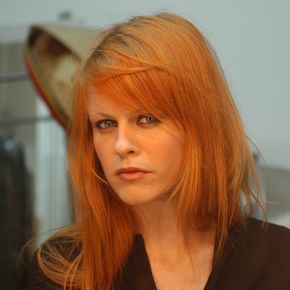 Gabriela Babnik was born in 1979 in Göppingen, Germany. After finishing her studies at Ljubljana University, she spent some time in Nigeria before working on a master’s degree on the modern Nigerian novel. Her first novel Koža iz bombaža (Cotton Skin) was published in 2007 and was awarded the Best Debut Novel by the Union of Slovenian Publishers, and her second V visoki travi (In the Tall Grass) was shortlisted for the Kresnik Award in 2010. She lives in Ljubljana.
Gabriela Babnik was born in 1979 in Göppingen, Germany. After finishing her studies at Ljubljana University, she spent some time in Nigeria before working on a master’s degree on the modern Nigerian novel. Her first novel Koža iz bombaža (Cotton Skin) was published in 2007 and was awarded the Best Debut Novel by the Union of Slovenian Publishers, and her second V visoki travi (In the Tall Grass) was shortlisted for the Kresnik Award in 2010. She lives in Ljubljana.
Rawley Grau, originally from Baltimore, has lived in Ljubljana since 2001. His translations from Slovene include The Succubus by Vlado Žabot (with Nikolai Jeffs), Family Parables by Boris Pintar, and poetry by Miljana Cunta, Janez Ramoveš and Andrej Rozman Roza.
Read more.
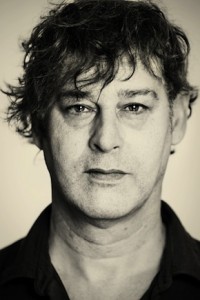 Peter Verhelst, born in 1962, is a Belgian Flemish novelist, poet and playwright. His breakthrough came in 1999 with the novel Tonguecat, which won the Golden Owl Literature Prize and the Flemish State Prize for Literature. His work has been praised for its powerful images, the sensuality and richness of its language unbridled imagination. The Man I Became is his eleventh novel.
Peter Verhelst, born in 1962, is a Belgian Flemish novelist, poet and playwright. His breakthrough came in 1999 with the novel Tonguecat, which won the Golden Owl Literature Prize and the Flemish State Prize for Literature. His work has been praised for its powerful images, the sensuality and richness of its language unbridled imagination. The Man I Became is his eleventh novel.
David Colmer has translated more than 50 books from the Dutch and has won numerous translation prizes, including the PEN Translation Prize for his body of work.
Read more.
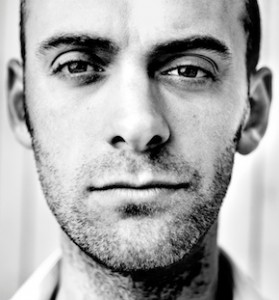 Jaap Robben is a poet, playwright, performer and acclaimed children’s author. You Have Me to Love, his first novel for adults, won the 2014 Dutch Booksellers Award and the Dioraphte Prize. A film adaptation by CTM Pictures is in development.
Jaap Robben is a poet, playwright, performer and acclaimed children’s author. You Have Me to Love, his first novel for adults, won the 2014 Dutch Booksellers Award and the Dioraphte Prize. A film adaptation by CTM Pictures is in development.
David Doherty studied English and Literary Linguistics in Glasgow before moving to the Netherlands. His translation of O, Louis: In Search of Louis van Gaal by Hugo Borst was shortlisted for the 2015 British Sports Book Awards.
Read more.
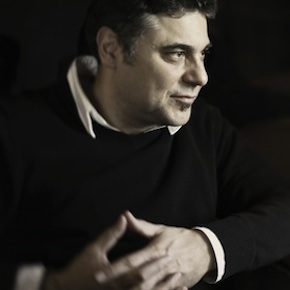 Alek Popov (Sofia, 1966) is one of the most popular contemporary Bulgarian writers, working as a novelist, dramatist, essayist and short-story writer. His hugely successful first novel Mission London, based on his experiences as Bulgarian cultural attaché to the UK, has been translated into sixteen languages. He serves on the board of Bulgarian PEN and is part of the editorial body of Granta Bulgaria. The Black Box is his second novel.
Alek Popov (Sofia, 1966) is one of the most popular contemporary Bulgarian writers, working as a novelist, dramatist, essayist and short-story writer. His hugely successful first novel Mission London, based on his experiences as Bulgarian cultural attaché to the UK, has been translated into sixteen languages. He serves on the board of Bulgarian PEN and is part of the editorial body of Granta Bulgaria. The Black Box is his second novel.
Daniella and Charles Edward Gill de Mayol de Lupe are husband-and-wife translators from Sofia and London. They also translated Mission London and much of Alek Popov’s non-fiction.
Read more.


